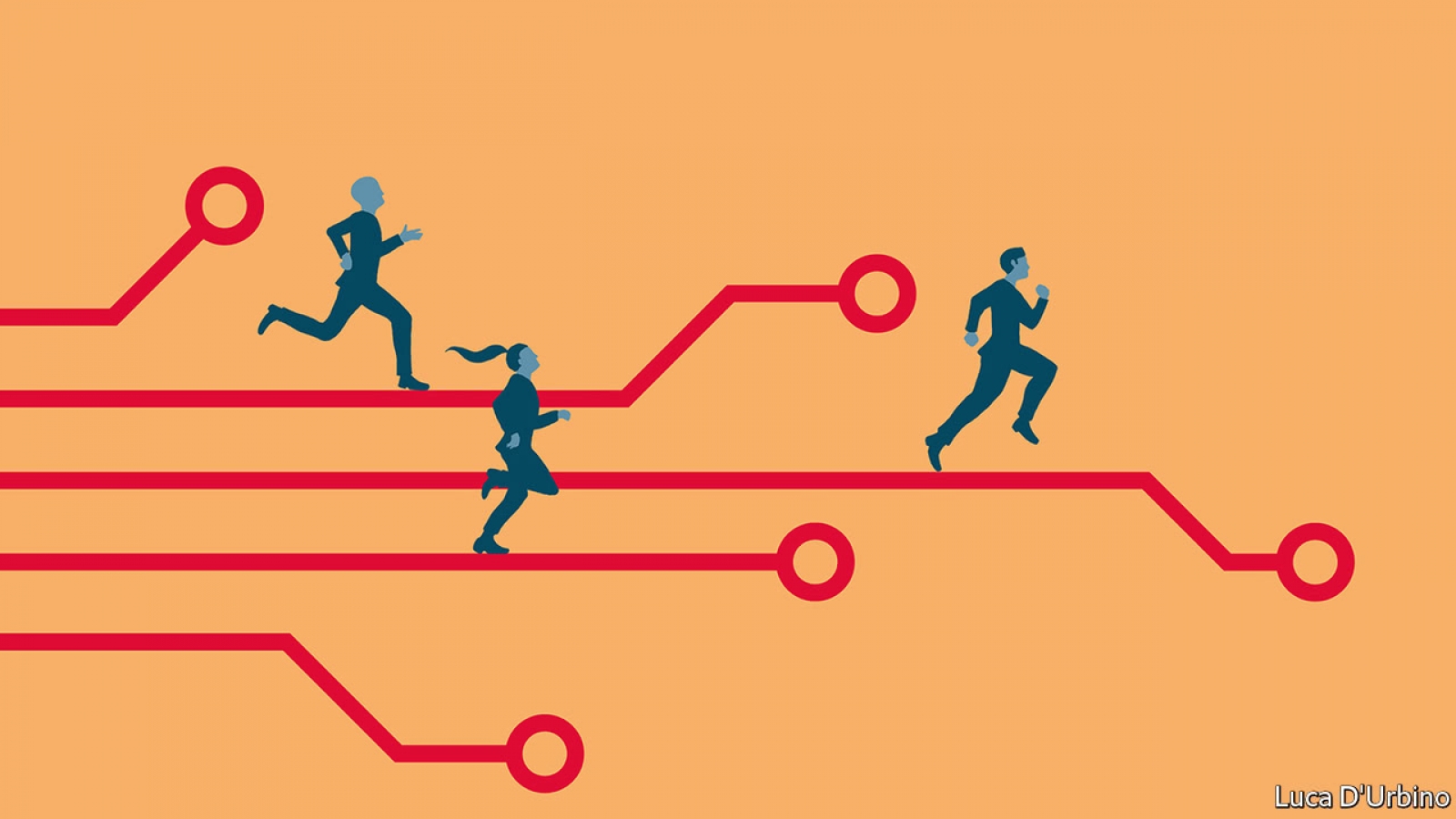Commanding the plot lines of Hollywood films, covers of magazines and reams of newsprint, the contest between artificial intelligence (AI) and mankind draws much attention. Doomsayers warn that AI could eradicate jobs, break laws and start wars. But such predictions concern the distant future.
copyright by www.economist.com
 The competition today is not between humans and machines but among the world’s technology giants, which are investing feverishly to get a lead over each other in AI.
The competition today is not between humans and machines but among the world’s technology giants, which are investing feverishly to get a lead over each other in AI.
Growing computing power
An exponential increase in the availability of digital data, the force of computing power and the brilliance of algorithms has fuelled excitement about this formerly obscure corner of computer science. The West’s largest tech firms, including Alphabet (Google’s parent), Amazon, Apple, Facebook, IBM and Microsoft are investing huge sums to develop their AI capabilities, as are their counterparts in China. Although it is difficult to separate tech firms’ investments in AI from other kinds, so far in 2017 companies globally have completed around $21.3bn in mergers and acquisitions related to AI, according to PitchBook, a data provider, or around 26 times more than in 2015.
Machine learning is the branch of AI that is most relevant to these firms. Computers sift through data to recognise patterns and make predictions without being explicitly programmed to do so. The technique is now used in all manner of applications in the tech industry, including online ad targeting, product recommendations, augmented reality and self-driving cars. Zoubin Ghahramani, who leads AI research at Uber, believes that AI will be as transformative as the rise of computers.
AI and databases
One way to understand AI’s potential impact is to look at databases. From the 1980s these made it cheap to store information, pull out insights and handle cognitive tasks such as inventory management. Databases powered the first generation of software; AI will make the next far more predictive and responsive, says Frank Chen of Andreessen Horowitz, a venture-capital firm. An application such as Google’s Gmail, which scans the content of e-mails and suggests quick, one-touch replies on mobile devices, is an early example of what could be coming. […]
read more – copyright by www.economist.com


Commanding the plot lines of Hollywood films, covers of magazines and reams of newsprint, the contest between artificial intelligence (AI) and mankind draws much attention. Doomsayers warn that AI could eradicate jobs, break laws and start wars. But such predictions concern the distant future.
copyright by www.economist.com
Growing computing power
An exponential increase in the availability of digital data, the force of computing power and the brilliance of algorithms has fuelled excitement about this formerly obscure corner of computer science. The West’s largest tech firms, including Alphabet (Google’s parent), Amazon, Apple, Facebook, IBM and Microsoft are investing huge sums to develop their AI capabilities, as are their counterparts in China. Although it is difficult to separate tech firms’ investments in AI from other kinds, so far in 2017 companies globally have completed around $21.3bn in mergers and acquisitions related to AI, according to PitchBook, a data provider, or around 26 times more than in 2015.
Machine learning is the branch of AI that is most relevant to these firms. Computers sift through data to recognise patterns and make predictions without being explicitly programmed to do so. The technique is now used in all manner of applications in the tech industry, including online ad targeting, product recommendations, augmented reality and self-driving cars. Zoubin Ghahramani, who leads AI research at Uber, believes that AI will be as transformative as the rise of computers.
AI and databases
One way to understand AI’s potential impact is to look at databases. From the 1980s these made it cheap to store information, pull out insights and handle cognitive tasks such as inventory management. Databases powered the first generation of software; AI will make the next far more predictive and responsive, says Frank Chen of Andreessen Horowitz, a venture-capital firm. An application such as Google’s Gmail, which scans the content of e-mails and suggests quick, one-touch replies on mobile devices, is an early example of what could be coming. […]
read more – copyright by www.economist.com
Share this: